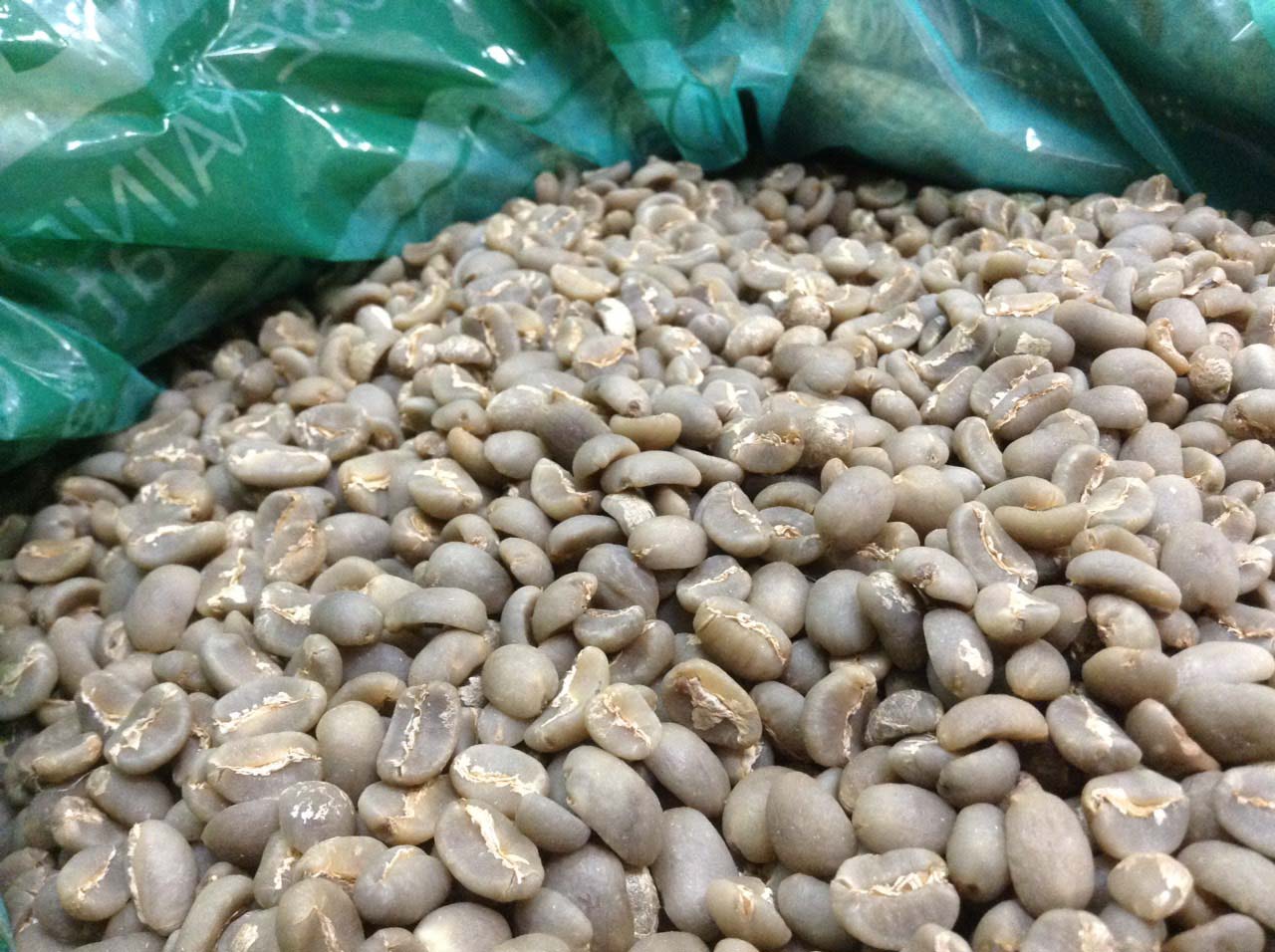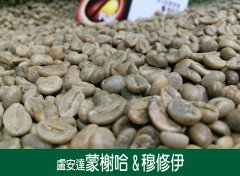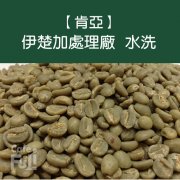Description of flavor and aroma of Rwanda A PLUS washed red bourbon coffee

For professional baristas, please follow the coffee workshop (Wechat official account cafe_style)
Rwanda Rwanda from Central Africa, Uganda to the north, Tanzania to the east, Burundi to the south and Congo to the west, is a standard landlocked country. The neighboring countries are all big coffee producers. For many years, Rwanda coffee beans have been exported through the ports of Uganda to Kenya.
Rwanda, a German colony at the beginning of the 20th century, was first introduced by German missionaries to grow coffee in 1904. Coffee production increased significantly around 1930. Rwanda was once the ninth largest exporter of Arabica coffee in Africa, with nearly 450000 small farmers, with an average planting area of less than 1 hectare per small farm (about 165coffee trees per coffee farmer) totaling about 28000 hectares. Coffee production areas are mainly distributed in the western half of the country and the central region near the capital Kigali Kigali.
* more than 95% of coffee varieties are Arabica Bourbon bourbon and a small amount of Catuai Kaduai and Caturra Kaddura
* planting height 1200m above sea level, 1800m above sea level
* flowering starts from September to October every year.
* 3murf-July in the next year of harvest
Due to the relationship between climate and geographical environment and related coffee organizations to improve the quality of coffee beans, in recent years, Rwanda has almost completely adopted water washing to treat raw beans, so cooperatives and estates share water treatment plants to save costs. generally speaking, coffee farms must be surrounded by water washing plants.
In the annual competition of Top Coffee held by the American Fine Coffee Association SCAA in 2008, Rwanda Aromec Arnolmega's top waterwashed bourbon beans beat the Blue Mountain No.1 of Jamaica and Mantenin G1 of Sumatra to win the 2008 COE Championship Award, which has expanded its fame and price in the coffee industry.
The Abakundakawa cooperative comes from the small village of Musasa and the Rushashi water treatment plant, about 30 kilometers northwest of the capital Kigali. At present, there are about 1960 members and two water washing plants. Farmers grow high-quality coffee organically and soak raw beans for 48 hours more than twice the normal washing time to increase the characteristics of bean fermentation. Then use the scaffolding exposure and a large number of manpower to pick out the bad beans that may be caused by soaking for a long time or other reasons, and at the same time, in 2010, Abakundakawa has been on the list of COE held in Rwanda for three consecutive years (2010 is the third place), it can be seen that the level of quality control is not poor, and the overall appearance of raw beans is similar to Kenya beans.
Rwanda Rwanda beans are characterized by smoothness, acidity and floral aromas similar to those of Yegashev and Kenya AA, sweet citrus quality with lemon and orange blossom aromas and caramel, and characteristics similar to those of East African beans in Zimbabwe and Kenya.
* 1 explosion medium heat to 1 explosion end off heat + 20sec under beans, the fruit acidity is very strong
* 1 end of explosion + beans under 65sec, the flavor is similar to that of Kenya
* do not like the sour taste of the recommended baking 2 explosion or just Touch 2 burst baking degree
-
Washed red bourbon cup flavor: nuts, almonds, grass, spices, melons and fruits
Important Notice :
前街咖啡 FrontStreet Coffee has moved to new addredd:
FrontStreet Coffee Address: 315,Donghua East Road,GuangZhou
Tel:020 38364473
- Prev

The flavor and taste of sunburn bourbon coffee in batches from Monseha & Mushoi processing plant in the western province of Rwanda
For the exchange of professional baristas, please follow the Coffee Workshop (Wechat official account cafe_style) 184Monseh Hamuyi processing Plant in the western province of Rwanda to cooperate with the batch of sunburn bourbon species Rwanda West Province Mashesha CWS Bourbon Natural country: Rwanda Rwanda production area: Western Province West Province processing Plant: Monseha processing Plant Mashe
- Next

Description of Coffee Flavor and Taste aroma of Inzovu Cooperative in Rwanda
Professional barista exchanges please follow the coffee workshop (Wechat official account cafe_style) Rwanda is located in Central Africa, in recent years because of the excellent quality of coffee has been concerned about coffee-producing countries by the boutique coffee industry. The Inzovu Cooperative has about 25000 small farmer members, each of whom takes care of 200 coffee trees to improve the quality of coffee cherries and produce better coffee! Country of production: Rwandan producer: when
Related
- Detailed explanation of Jadeite planting Land in Panamanian Jadeite Manor introduction to the grading system of Jadeite competitive bidding, Red bid, Green bid and Rose Summer
- Story of Coffee planting in Brenka region of Costa Rica Stonehenge Manor anaerobic heavy honey treatment of flavor mouth
- What's on the barrel of Blue Mountain Coffee beans?
- Can American coffee also pull flowers? How to use hot American style to pull out a good-looking pattern?
- Can you make a cold extract with coffee beans? What is the right proportion for cold-extracted coffee formula?
- Indonesian PWN Gold Mandrine Coffee Origin Features Flavor How to Chong? Mandolin coffee is American.
- A brief introduction to the flavor characteristics of Brazilian yellow bourbon coffee beans
- What is the effect of different water quality on the flavor of cold-extracted coffee? What kind of water is best for brewing coffee?
- Why do you think of Rose Summer whenever you mention Panamanian coffee?
- Introduction to the characteristics of authentic blue mountain coffee bean producing areas? What is the CIB Coffee Authority in Jamaica?

